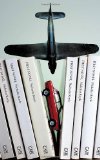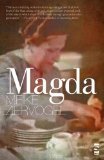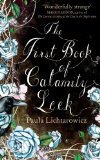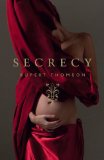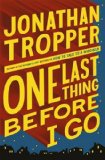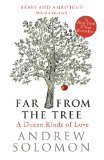Five words from the blurb: creative, writing, mystery, blend, fact
First Novel is an original, experimental piece of meta-fiction. The central character teaches creative writing at a university in Manchester and has an obsession with first novels. The book is packed with literary references, but these are the only things in the book that are reliable. Everything else is ambiguous, leaving the reader to puzzle over events.
I normally love meta fiction, but for some reason First Novel didn’t work for me – I thought it was trying too hard to be clever. Lots of people love it, but I found it detached. The ambiguous writing style also annoyed me and I began to crave some actual facts:
In the morning I walk down the dismantled railway line as far as the bottom of Burnage Lane, where I stop and listen to the sound of my own breathing. I face a choice. Either I go left up Didsbury Road and catch a bus to Stockport in order to pick up the car, or I go straight on through the little tunnel and then down to the river and Overcoat Man. Either or.
It felt like a creative writing exercise, but perhaps it is supposed to come across that way and I just missed the satire? The majority of other reviews praise the shocking plot twist, but I’m afraid I wasn’t connected enough to the characters to care and so took the twist as just another example of the writer trying too hard.
On a positive note, I loved the way Manchester was portrayed in the book. I have been to some of the areas and it was lovely to see so many familiar streets on paper.
In the past I have struggled with other experimental novels (for example, The Rehearsal by Eleanor Catton and Light Boxes by Shane Jones), but if you enjoy books that push the boundaries in this way then I think you’ll love First Novel. Many people are predicting this book will be longlisted for the Booker Prize. I think they’re probably right – it takes a special book to annoy me, but still make me want to read to the end!

.
The thoughts of other bloggers:
…this is a progressive, intensely contemporary, brilliant work which challenges the easy certainties of the traditional novel. Words of Mercury
If the writing assignment was to use all the most interesting techniques of postmodernism to create an intellectually stimulating, funny, serious and clever novel, Nicholas Royle has more than made the grade. Slightly Bookist
The real majesty comes from the construction of the novel and how easy it is to read despite the origami-like concepts. Dog Ear Discs
